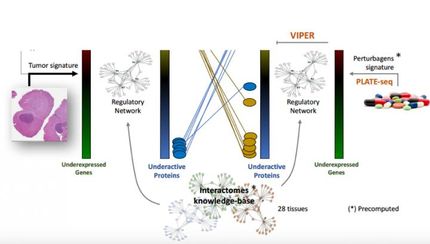Study links vitamin D to lung cancer survival
U-M researchers find high levels of enzyme that blocks vitamin D can predict lung cancer survival, U-M study finds
Recent research suggests vitamin D may be able to stop or prevent cancer. Now, a new study finds an enzyme that plays a role in metabolizing vitamin D can predict lung cancer survival.
The study, from researchers at the University of Michigan Comprehensive Cancer Center, suggests that this enzyme stops the anti-cancer effects of vitamin D.
Levels of the enzyme, called CYP24A1, were elevated as much as 50 times in lung adenocarcinoma compared with normal lung tissue. The higher the level of CYP24A1, the more likely tumors were to be aggressive. About a third of lung cancer patients had high levels of the enzyme. After five years, those patients had nearly half the survival rate as patients with low levels of the enzyme.
Researchers then linked this to how CYP24A1 interacts with calcitriol, the active form of vitamin D. CYP24A1 breaks down calcitriol, which has a normal and crucial role when kept in check. But when levels of CYP24A1 climb, the enzyme begins to hinder the positive anti-cancer effects of vitamin D. Results of the study appear in Clinical Cancer Research.
Previous studies have linked low levels of vitamin D to a higher incidence of cancer and worse survival. Researchers are looking at using vitamin D to help prevent lung cancer from returning and spreading after surgery. This new study suggests the possibility of using CYP24A1 levels to personalize this approach to those likely to benefit most.
“Half of lung cancers will recur after surgery, so it’s important to find a way to prevent or delay this recurrence. A natural compound like vitamin D is attractive because it has few side effects, but it’s even better if we can determine exactly who would benefit from receiving vitamin D,” says study author Nithya Ramnath, M.D., associate professor of internal medicine at the U-M Medical School.
Researchers also are working to identify drugs that block CYP24A1. Blocking the enzyme would reinstate the positive anti-cancer effects of vitamin D, suggesting that this inhibitor could potentially be combined with vitamin D treatments.
Most read news
Organizations
Other news from the department science

Get the life science industry in your inbox
By submitting this form you agree that LUMITOS AG will send you the newsletter(s) selected above by email. Your data will not be passed on to third parties. Your data will be stored and processed in accordance with our data protection regulations. LUMITOS may contact you by email for the purpose of advertising or market and opinion surveys. You can revoke your consent at any time without giving reasons to LUMITOS AG, Ernst-Augustin-Str. 2, 12489 Berlin, Germany or by e-mail at revoke@lumitos.com with effect for the future. In addition, each email contains a link to unsubscribe from the corresponding newsletter.





















































